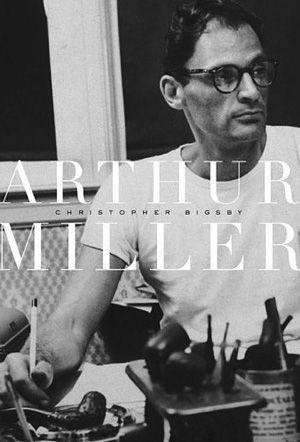
Christopher Bigsby, a professor of American Studies and the Director of the Arthur Miller Centre at the University of East Anglia, has written extensively about Arthur Miller. He recently published a biography on the playwright, Arthur Miller (Harvard University Press, 2009), and he writes here about working at the Ransom Center.
I have been visiting the Harry Ransom Center for more than 30 years, most recently working on Arthur Miller’s papers, though the staff there must have been somewhat irritated when Miller held back boxes of materials so that I could work through them to write his biography. It delayed their arrival in Austin by nearly two years. You will even find among them a page bearing a lipstick kiss from Marilyn Monroe, a touch distracting to the serious scholar.
I once made a BBC television film about the Ransom Center during which I learned that in the event of fire, the area floods with inert gas. It is designed to preserve the collection though, alas, not the researchers. I am told that more recently they have exchanged this for a sprinkler system. As an academic I think that shows a failure of nerve. I approved of the earlier priority.
In England there is an excellent fish and chip chain called Harry Ramsden’s. I’ve been known to confuse the two, not least because both offer immediate satisfaction wrapped up in yesterday’s papers. For academics the Center is a kind of limbo. When you go there, you don’t know whether you will discover a path to heaven or hell. Will the hidden be revealed, theories proved, or will the notebooks of writers contradict everything you wish to say? Does tenure await or a life in advertising?
The Ransom Center is what the House of the Medicis once was to 14th century Florence. Admittedly it hasn’t as yet produced many Popes, but it has had a hand in a new Renaissance. In the past, its money, admittedly, came from oil and not banking (hard to know which it is harder to love right now) but its role in preserving our cultural heritage (the UK’s no less than the US) has been central. Where else but Texas, after all, should we look to research Winnie the Pooh?

